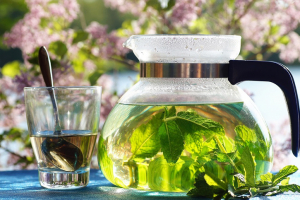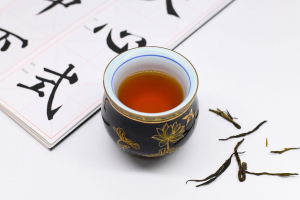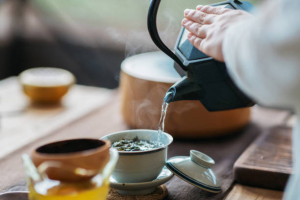Top 9 Teas to Soothe an Upset Stomach
Drinking a hot cup of tea might help relieve the symptoms of an upset stomach. However, the type of tea may have a significant impact. In fact, studies on ... read more...several types have shown that they can help with conditions including nausea, diarrhea, and vomiting. The greatest teas to calm an upset stomach are listed below.
-
The numerous possible health advantages of green tea have been the subject of much investigation. In the past, it was employed as a natural treatment for diarrhea and Helicobacter pylori infection, a bacterial strain that can result in nausea, bloating, and stomach pain. It could also cure other gastric problems. Green tea, for instance, was found to considerably lessen the frequency and severity of diarrhea brought on by radiation therapy in research involving 42 individuals.
Green tea and its constituents have also been demonstrated in animal tests to be effective in treating stomach ulcers, which can result in discomfort, gas, and indigestion. Remember that it's recommended to limit your consumption to 1-2 cups (240-475 ml) each day because, strangely, drinking more than that might cause negative effects like nausea and upset stomach owing to the high caffeine concentration.
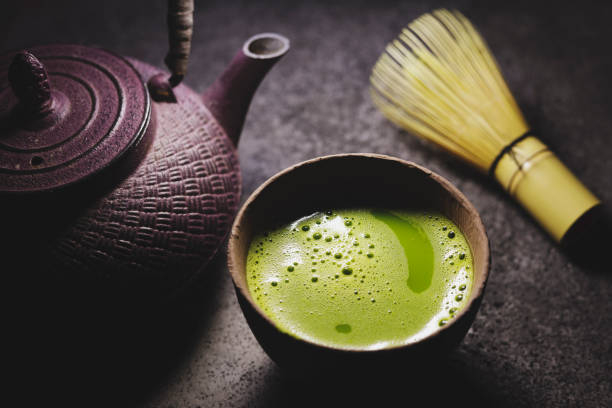
Green tea 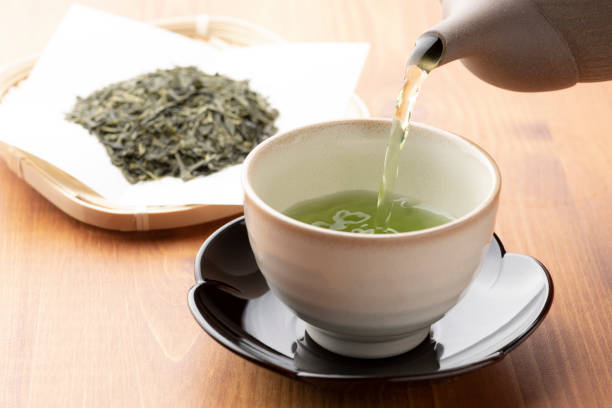
Green tea -
Ginger root is boiled in water to make ginger tea. This root could be quite helpful for stomach problems including nausea and vomiting. According to one study, ginger prevented nausea and vomiting brought on by chemotherapy as well as morning sickness in expectant mothers.
According to another review, ginger can assist bowel regularity while reducing gas, bloating, cramps, and discomfort. Although the majority of these trials focused on ginger supplements in high doses, ginger tea could offer many of the same advantages. To prepare it, grate a knob of peeled ginger and soak it for 10 to 20 minutes in hot water. Strain and consume on its own or with a dash of cayenne, honey, or lemon.
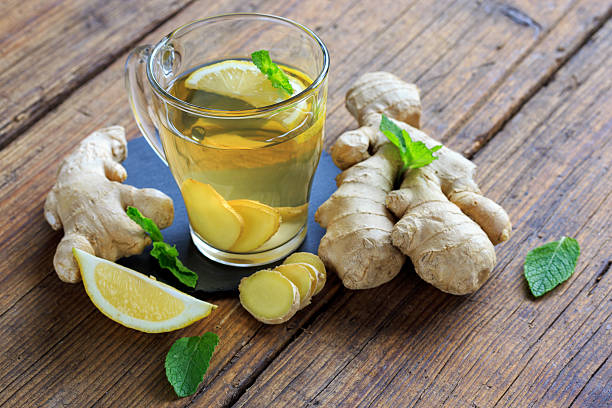
Ginger tea 
Ginger tea -
When stomach discomfort first appears, many people turn to peppermint tea. According to research on animals, peppermint can ease discomfort by calming the muscles in the intestines. Additionally, a study of 14 trials involving 1,927 persons found that peppermint oil decreased the length, frequency, and intensity of children's stomach aches. Even the prevention of chemotherapy-related nausea and vomiting has been demonstrated with this oil.
According to research, the mere fragrance of peppermint oil might help avoid nausea and vomiting. Although the tea itself is not the subject of these trials, the oil, peppermint tea may provide comparable advantages. Alternatively, you may create your own by steeping crushed peppermint leaves in hot water for 7–12 minutes. This tea is sold in grocery shops.
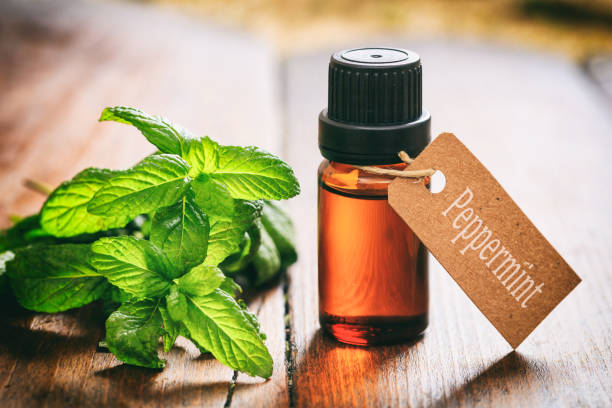
Peppermint tea 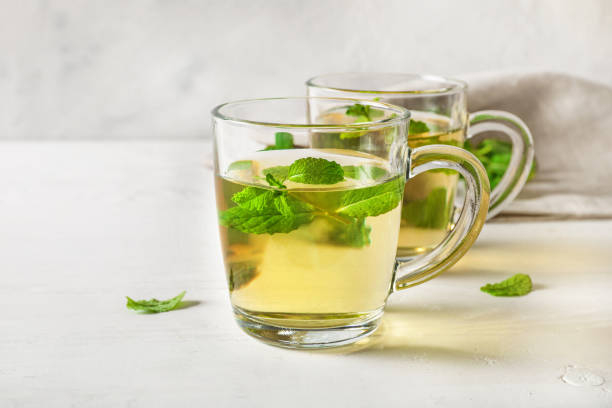
Peppermint tea -
Similar to green tea, black tea has a number of health advantages, including the ability to calm an upset stomach. It could be particularly useful for treating diarrhea. In fact, consuming a black tea capsule improved the volume, frequency, and regularity of bowel movements in a trial involving 120 kids.
According to 27-day research, administering black tea extract to pigs with E. coli infections decreased the incidence of diarrhea by 20%. Even though the majority of study focuses on supplements, drinking tea may still help relieve gastrointestinal issues. However, it's advised to keep your consumption to 1-2 cups (240-475 ml) each day as too much of its caffeine may irritate your stomach.

Black tea 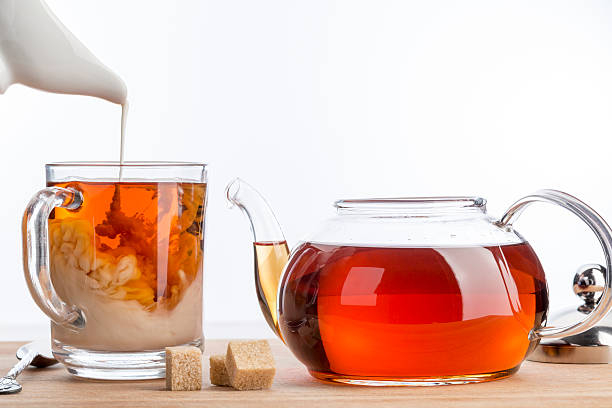
Black tea -
A member of the carrot family, fennel has a taste bursting with licorice overtones. This blooming plant's tea is frequently used to cure a number of conditions, including gas, diarrhea, constipation, and stomachaches. Fennel supplements were taken for many days prior to and during menstruation in research involving 80 women. This reduced symptoms including nausea. Additionally, a test-tube investigation discovered that fennel extract inhibited the growth of a number of bacterial types, including dangerous E. coli.
Fennel tea enhanced normal digestion and gut healing after surgery, according to a second trial including 159 patients. Pour 1 cup (240 ml) of boiling water over 1 teaspoon (2 grams) of dried fennel seeds to make fennel tea at home. Alternately, you can soak the fennel plant's roots or leaves in boiling water for 5–10 minutes before filtering.

Fennel tea 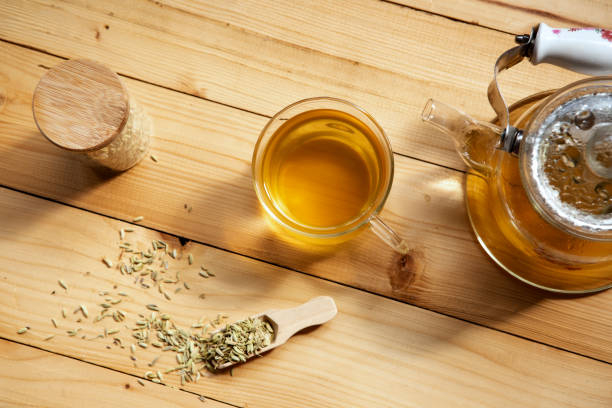
Fennel tea -
The distinctively sweet, somewhat bitter flavor of licorice is well known. This legume has been used extensively in traditional medicine to soothe upset stomachs. Numerous studies show that licorice aids in the recovery of stomach ulcers, which can result in symptoms like nausea, indigestion, and stomach pain as well as heartburn. Notably, a month-long trial involving 54 individuals revealed that 75 mg of licorice extract taken twice a day markedly reduced indigestion.
However, further study is required on licorice tea in particular. You can buy this tea online and in many stores. In herbal tea blends, it is frequently mixed with other herbs. Remember that licorice root has been connected to a number of adverse effects and that excessive doses can be harmful. As a result, limit your intake of licorice tea to 1 cup (240 ml) each day and talk to your doctor if you have any health issues.
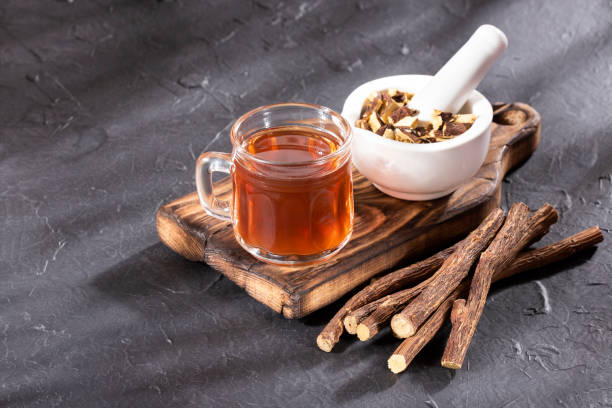
Licorice tea 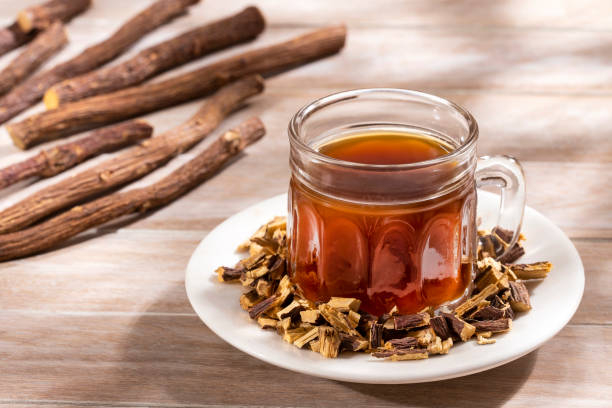
Licorice tea -
Light and delicious, chamomile tea is frequently regarded as one of the most calming varieties of tea. It's frequently employed to soothe the muscles in your digestive tract and cure conditions including gas, indigestion, motion sickness, nausea, vomiting, and diarrhea. When compared to a control group, ingesting 500 mg of chamomile extract twice a day reduced the frequency of vomiting brought on by chemotherapy in a trial involving 65 women. Additionally, chamomile extract was reported to reduce diarrhea in a rat trial.
While the chamomile extract used in this research was concentrated, the tea derived from these daisy-like flowers may also be helpful for treating digestive issues. To prepare it, brew 1 cup (237 ml) of boiling water with a prepared tea bag or 1 tablespoon (2 grams) of dried chamomile flowers for 5 minutes.

Chamomile tea 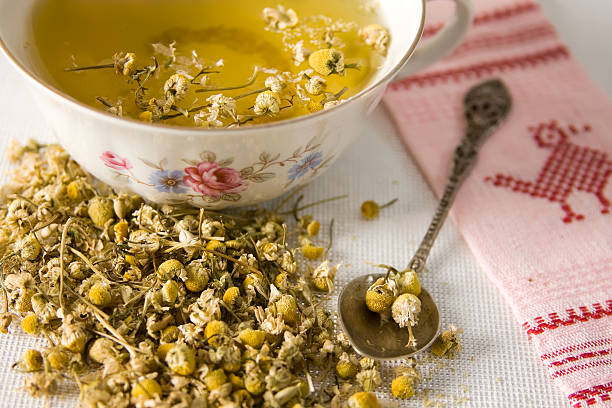
Chamomile tea -
Holy basil sometimes referred to as tulsi, is a potent herb that has long been valued for its therapeutic powers. It's a fantastic alternative to calm an upset stomach, despite not being as popular as other teas. Holy basil defends against stomach ulcers, which can result in a variety of symptoms, such as nausea, heartburn, and stomach discomfort, according to several animal studies.
In fact, holy basil totally cured stomach ulcers that had existed within 20 days of therapy in one animal research. Many health stores have holy basil tea bags, and you may also buy them online. You may also make your own fresh cup of holy basil tea with dried holy basil powder.
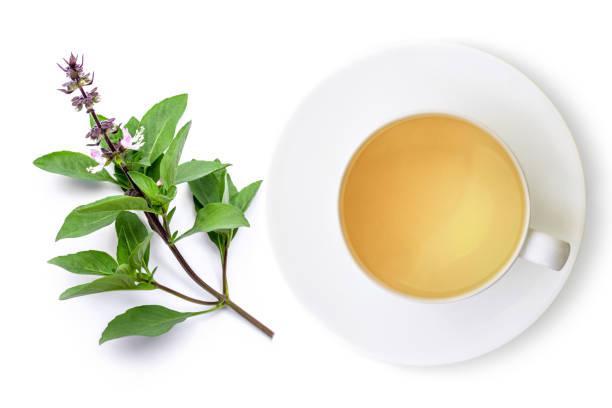
Holy basil tea 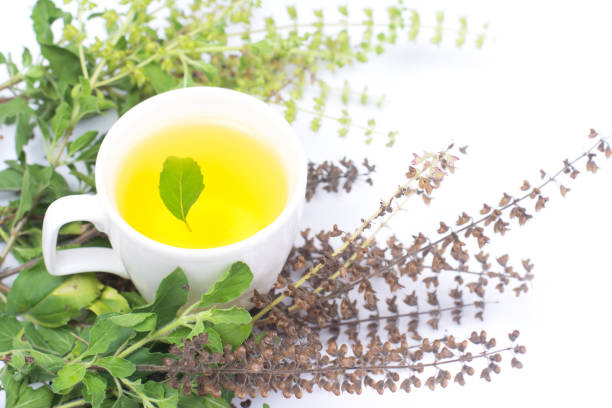
Holy basil tea -
Similar to peppermint, spearmint may ease stomach discomfort. It contains a substance called carvone, which lessens the spasms of the muscles in your digestive tract. 32 IBS sufferers were given a product comprising spearmint, coriander, and lemon balm along with medicine for diarrhea or constipation during eight-week research. When compared to the control group, participants taking the spearmint supplement had considerably reduced bloating, pain, and discomfort in their stomachs.
But the supplement didn't simply include spearmint; it also had other components. Additionally, test-tube research found that this mint prevented the growth of a number of bacteria types that may be responsible for foodborne sickness and digestive problems. Making spearmint tea at home is simple. Simply heat up 1 cup (240 ml) of water until it begins to boil, then turn off the heat and add a few spearmint leaves. After 5 minutes of infusion, filter and serve.
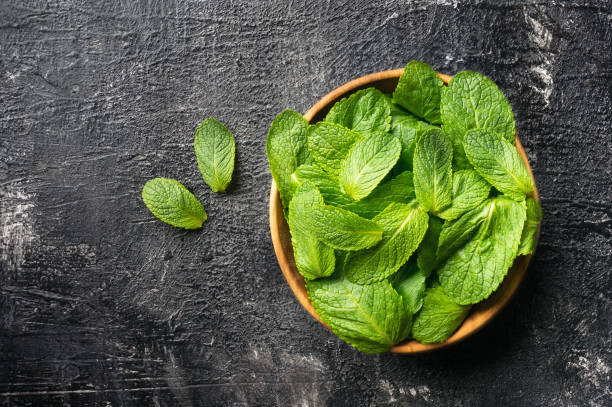
Spearmint tea 
Spearmint tea












